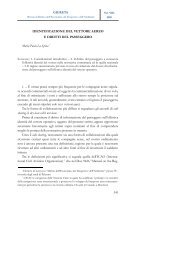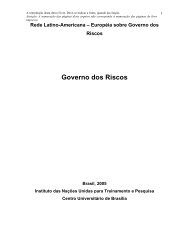Rome II and Tort Conflicts: A Missed Opportunity Abstract Contents
Rome II and Tort Conflicts: A Missed Opportunity Abstract Contents
Rome II and Tort Conflicts: A Missed Opportunity Abstract Contents
Create successful ePaper yourself
Turn your PDF publications into a flip-book with our unique Google optimized e-Paper software.
SYMEON C. SYMEONIDES ROME <strong>II</strong> AND TORT CONFLICTS<br />
foreign law as Parliament’s unsuccessful amendment expressly provided. Indeed, it<br />
is the law of the foreign state that makes these facts relevant, not the other way<br />
around. Stated another way, the fact that medical costs are high in the victim’s<br />
residence is not significant unless the victim would be entitled to recover medical<br />
costs under that state’s law. To this extent, recital 33 can be seen as an example of a<br />
content-oriented law selection.<br />
E. State or National Interests<br />
A casual look at <strong>Rome</strong> <strong>II</strong> confirms the impression that, like most traditional<br />
PIL systems in Europe, <strong>Rome</strong> <strong>II</strong> does not subscribe to the notion that ordinary<br />
conflicts disputes at the private-law level implicate the interests of the involved<br />
countries. Indeed, none of <strong>Rome</strong> <strong>II</strong>’s articles refer to state policies, much less interests,<br />
<strong>and</strong> both the Preamble <strong>and</strong> the Explanatory Report contain several statements<br />
describing <strong>Rome</strong> <strong>II</strong>’s goal as one of “ensur[ing] a reasonable balance between the<br />
interests of [the parties, i.e.,] the person claimed to be liable <strong>and</strong> the person who has<br />
sustained damage.” 53<br />
Yet, one who looks below the surface would discover that <strong>Rome</strong> <strong>II</strong> is not<br />
oblivious to state interests. In several instances, the Preamble refers to broader societal<br />
interests that reach beyond the interests of private litigants. For example, with regard<br />
to products liability, recital 20 of the Preamble speaks of the policies of “fairly<br />
spreading the risks, . . . protecting consumers’ health, stimulating innovation, securing<br />
54<br />
undistorted competition <strong>and</strong> facilitating trade.” With regard to unfair competition,<br />
recital 21 speaks of the need to “protect competitors, consumers <strong>and</strong> the general public<br />
55<br />
<strong>and</strong> ensure that the market economy functions properly.” Recital 25, with regard to<br />
environmental torts, states that the need for a “high level of [environmental]<br />
protection” <strong>and</strong> the “principle that the polluter pays” justify a choice-of-rule of<br />
56<br />
“discriminating in favour of the person sustaining the damage.” Finally, recital 31<br />
recognizes the need to impose certain restrictions on the parties’ power to choose the<br />
governing law so as to protect the weaker parties. 57<br />
More importantly, some of <strong>Rome</strong> <strong>II</strong>’s dispositive articles can only be explained<br />
in terms of public (<strong>and</strong> thus state) interests, rather than in terms of private interests.<br />
Besides Article 26 which codifies the traditional ordre public exception, <strong>and</strong> Article<br />
16 which allows the forum to interpose its own m<strong>and</strong>atory rules, many other<br />
provisions of <strong>Rome</strong> <strong>II</strong> are designed to be sensitive to certain preferred substantive<br />
53. ROME <strong>II</strong>, recital (16).<br />
54. Id. at recital (20).<br />
55. Id. at recital (21).<br />
56. Id. at recital (25).<br />
57. Id. at recital (31).<br />
56 AMERICAN JOURNAL OF COMPARATIVE LAW (2008) PAGE 12 OF 46



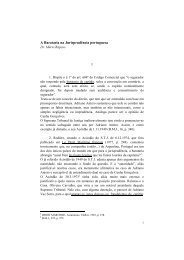

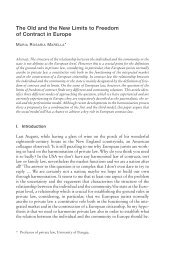

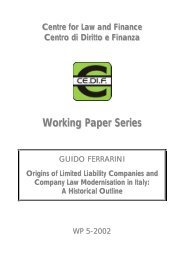
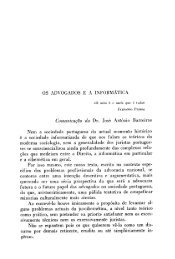
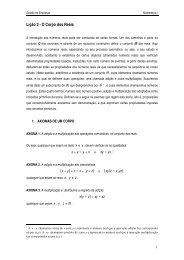

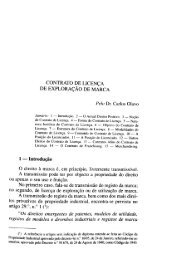
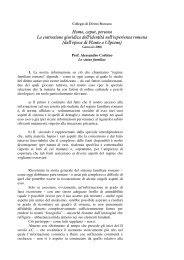
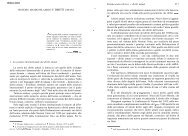

![Luigi Sapio Nozione di islām La parola “islām” [ ] è il mas.dar1 ...](https://img.yumpu.com/15836073/1/185x260/luigi-sapio-nozione-di-islam-la-parola-islam-e-il-masdar1-.jpg?quality=85)
